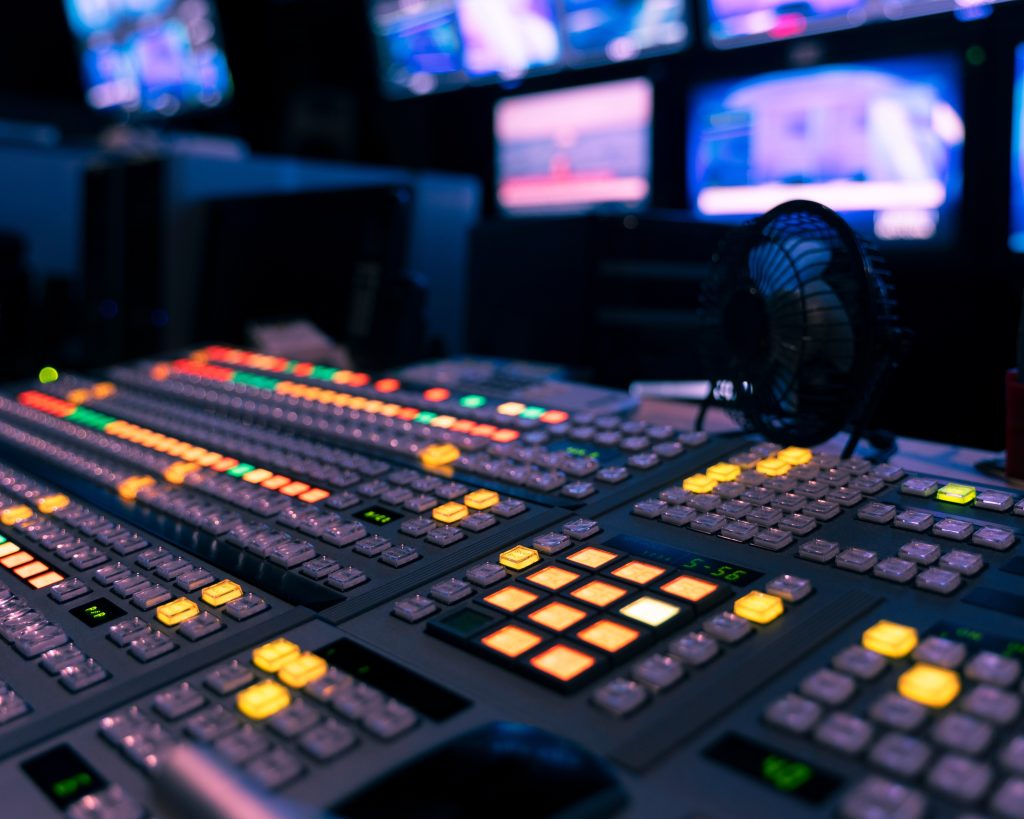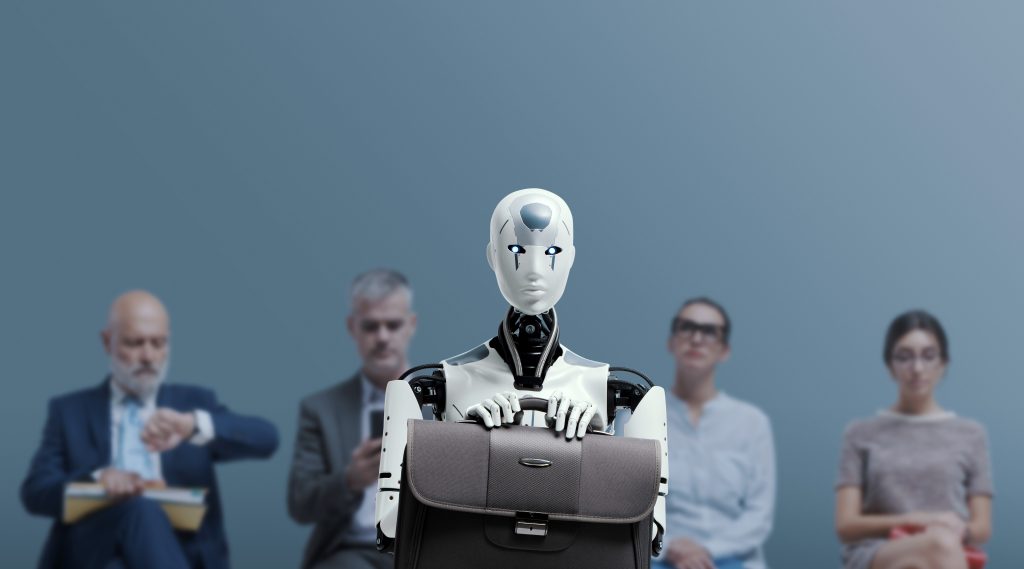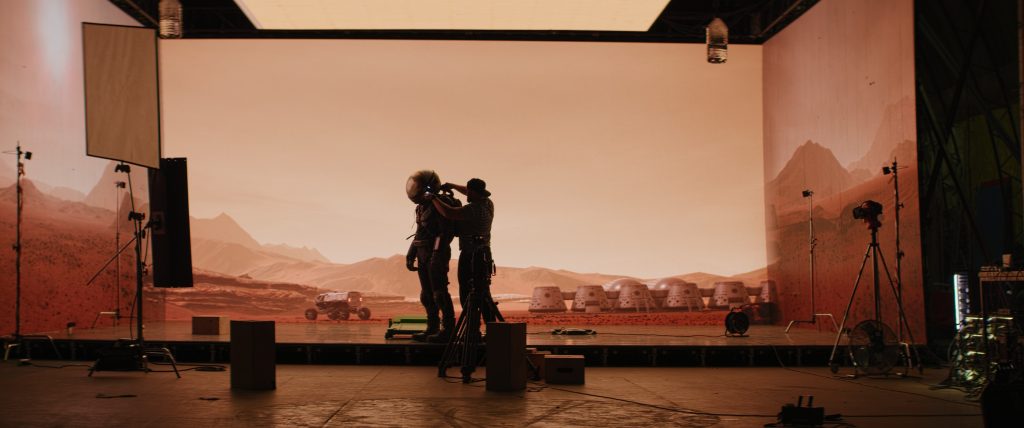
Artificial intelligence (AI) is no longer a futuristic concept—it’s here, and it’s fundamentally reshaping the media and entertainment landscape. From content creation and personalized recommendations to production and advertising, AI is a powerful force driving innovation in radio, television, and movies. While it presents incredible opportunities for efficiency and creativity, it also raises important questions about the future of jobs and the authenticity of art.

Here’s a breakdown of how AI is impacting these industries today. What we can expect in the years to come?
AI’s Impact on Radio: From Automation to Personalization
Radio, a medium often seen as traditional, is being transformed by AI. It’s moving beyond simple broadcasting to become a highly personalized and data-driven experience.

Now: The AI-Powered Radio Station
* Automated Content & Operations: AI is streamlining daily tasks. Programmers are creating playlists based on listener preferences, generating news updates and weather reports. This allows human talent to focus on more creative and engaging content.
* AI Hosts: Voice cloning and text-to-speech technology have enabled the creation of AI radio hosts. These hosts can deliver conversational, natural-sounding speech and are being used in podcasts, news segments. There is also a push for full radio shows.
* Hyper-Targeted Advertising: AI analyzes listener data in real-time to determine the best time, tone, and format for an ad to air. This results in more effective ad campaigns that are tailored to the listener’s mood, location, or past listening habits.
Future: The Intuitive, Listener-Centric Experience
In the future, radio will be more intuitive and responsive. Imagine an AI system that automatically tunes your car radio to a station broadcasting a live interview with your favorite celebrity as you drive through a new city. AI will make radio an experience that is constantly adapting to your specific preferences. This creates a level of personalization that was previously impossible.

AI’s Impact on TV and Movies: From Script to Screen
The film and television industry is embracing AI to enhance every stage of production, from the initial script to the final marketing campaign.
Now: Enhancing the Creative and Production Process
* Script Analysis & Development: AI can analyze thousands of scripts to predict potential for success and suggest improvements. This helps screenwriters refine their work and enables producers to make more informed decisions about what projects to greenlight.
* Visual Effects & Post-Production: AI is becoming crucial for creating stunning visual effects The result is reducing production time and containing costs. It helps with everything from 3D modeling and character design to sound and music editing.
* Casting and Location Scouting: AI can streamline the casting process by analyzing actor attributes and matching them with suitable roles. It can also assist with location scouting by analyzing data on permits, regulations, and logistics to provide accurate cost estimations.
* Content Moderation and Personalization: Streaming services use AI-driven recommendation systems to suggest content to viewers, increasing engagement and retention. On the back end, AI also helps moderate content. This ensures compliance with platform policies and removing harmful material.

Future: The Rise of Interactive and Generative Content
The future of TV and movies will be defined by a new level of creativity and audience engagement.
* AI-Generated Content: The next decade could see the rise of entire TV shows or movies created from a single prompt. This could lead to a constant stream of fresh, high-quality content for fans of their favorite shows.
* Interactive Storytelling: Viewers might be able to interact with shows in real-time, with characters responding to their input and shaping the narrative. This could lead to truly personalized and unique viewing experiences.
* Digital Resurrections: AI is already being used to bring back deceased actors for new roles or to finish old ones, raising complex ethical and legal questions.
* Democratization of Filmmaking: AI tools could make filmmaking more accessible to independent creators, allowing them to achieve visually stunning effects and streamline production without a massive budget.
The Overall Impact: Opportunities and Challenges
AI’s influence on radio, TV, and movies extends beyond the individual industries.
Opportunities:
Increased Efficiency & Cost Savings: AI automates repetitive tasks, freeing up human talent to focus on creativity.
Enhanced Personalization: AI-driven recommendations and personalized content lead to higher audience engagement and satisfaction.
New Creative Horizons: AI opens up possibilities for new forms of interactive and generative storytelling.
Challenges:
Job Displacement: AI’s ability to automate tasks like scriptwriting, editing, and voice-over work raises concerns about job losses, especially for entry-level positions.
Authenticity and Ethics: The use of AI-generated content and digital clones raises questions about the authenticity of art and the ethical use of a person’s image and voice.
Legal and Copyright Issues: The use of AI-generated content, particularly when trained on existing material, presents new legal challenges regarding copyright and ownership.
In conclusion, AI is not a passing trend but a transformative technology that is reshaping the media and entertainment industry from the ground up. While it offers unprecedented opportunities for innovation and personalization, navigating its ethical and social implications will be crucial in ensuring a future where human creativity and AI-powered tools can coexist and thrive.
MUST READ
Artificial Intelligence Is Not A New Concept – News Talk Ohio
EFL Championship is back, with more American eyes on it – Sports Talk United

Viorica Bruni Athletica Sports Editor








































